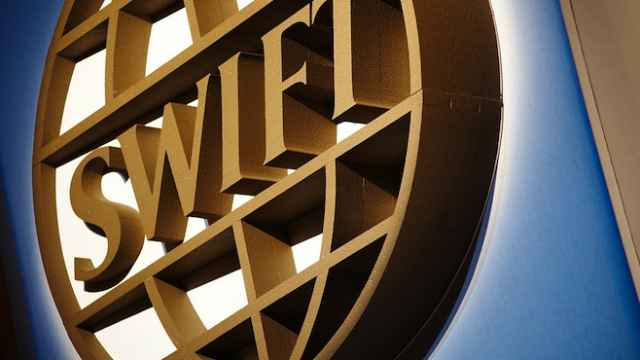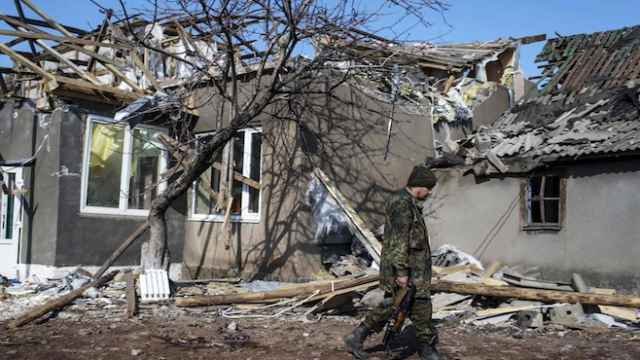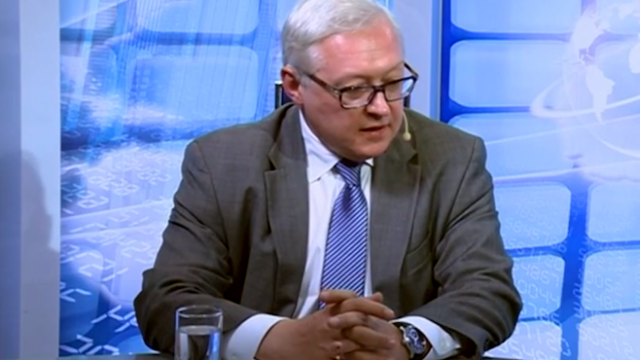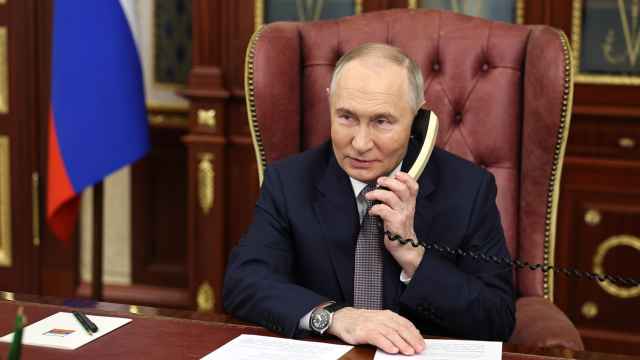European Union leaders are unlikely to tighten sanctions on Russia when they meet next week but will haggle over whether they need to act now to prolong economic sanctions on Russia expiring in July, diplomats said Thursday.
With an uneasy cease-fire in place in eastern Ukraine, the 28 EU nations see no pressing case to either impose new sanctions on Russia, which they accuse of supporting the Ukrainian separatists, or to relax them.
The EU is instead focusing on how it can help ensure the Minsk agreement is fully implemented.
The Ukraine debate at an EU summit on Thursday and Friday will revolve around whether the EU should signal its resolve by acting now to extend economic sanctions on Russia imposed last July or wait a few months to see how the cease-fire develops.
Leaders are likely to say they are ready to impose more measures on Russia if necessary but several EU governments have said stricter measures would only be taken if the separatists seriously violate the Minsk agreement such as by attacking the port city of Mariupol.
Barring negative developments on the ground, "I don't think there will be a real prospect of new deeper and wider economic sanctions being agreed next week," one EU diplomat said.
"I think the focus will essentially be around: Do we just do nothing next week or do we roll over (sanctions) for a further six months or a year?" he said.
Ukraine is not even on the agenda of EU foreign ministers who meet in Brussels on Monday.
EU governments will on Friday adopt a decision extending asset freezes and travel bans on a list of Ukrainian and Russian people and organizations until September. That is a legal formality after EU member states agreed to do so in January.
The more delicate decision that will be pushed up to EU heads of government next week is whether and, if so, when and for how long to prolong the economic sanctions on Russia's financial, defense and energy sectors passed last July.
French Foreign Minister Laurent Fabius said last Friday that a decision on whether to extend existing economic sanctions on Russia could wait until around July. But he said some EU governments were pressing for a decision now.
Unanimity is required to renew sanctions and, a year after Russia annexed Ukraine's Crimea region, a few EU governments are already pressing for sanctions to be relaxed, diplomats said.
Despite tough EU rhetoric, member states have always been divided in their enthusiasm for sanctions, with Poland, Britain and the Baltics taking a tough line while Italy, Austria and Cyprus are more dovish.
A Message from The Moscow Times:
Dear readers,
We are facing unprecedented challenges. Russia's Prosecutor General's Office has designated The Moscow Times as an "undesirable" organization, criminalizing our work and putting our staff at risk of prosecution. This follows our earlier unjust labeling as a "foreign agent."
These actions are direct attempts to silence independent journalism in Russia. The authorities claim our work "discredits the decisions of the Russian leadership." We see things differently: we strive to provide accurate, unbiased reporting on Russia.
We, the journalists of The Moscow Times, refuse to be silenced. But to continue our work, we need your help.
Your support, no matter how small, makes a world of difference. If you can, please support us monthly starting from just $2. It's quick to set up, and every contribution makes a significant impact.
By supporting The Moscow Times, you're defending open, independent journalism in the face of repression. Thank you for standing with us.
Remind me later.





